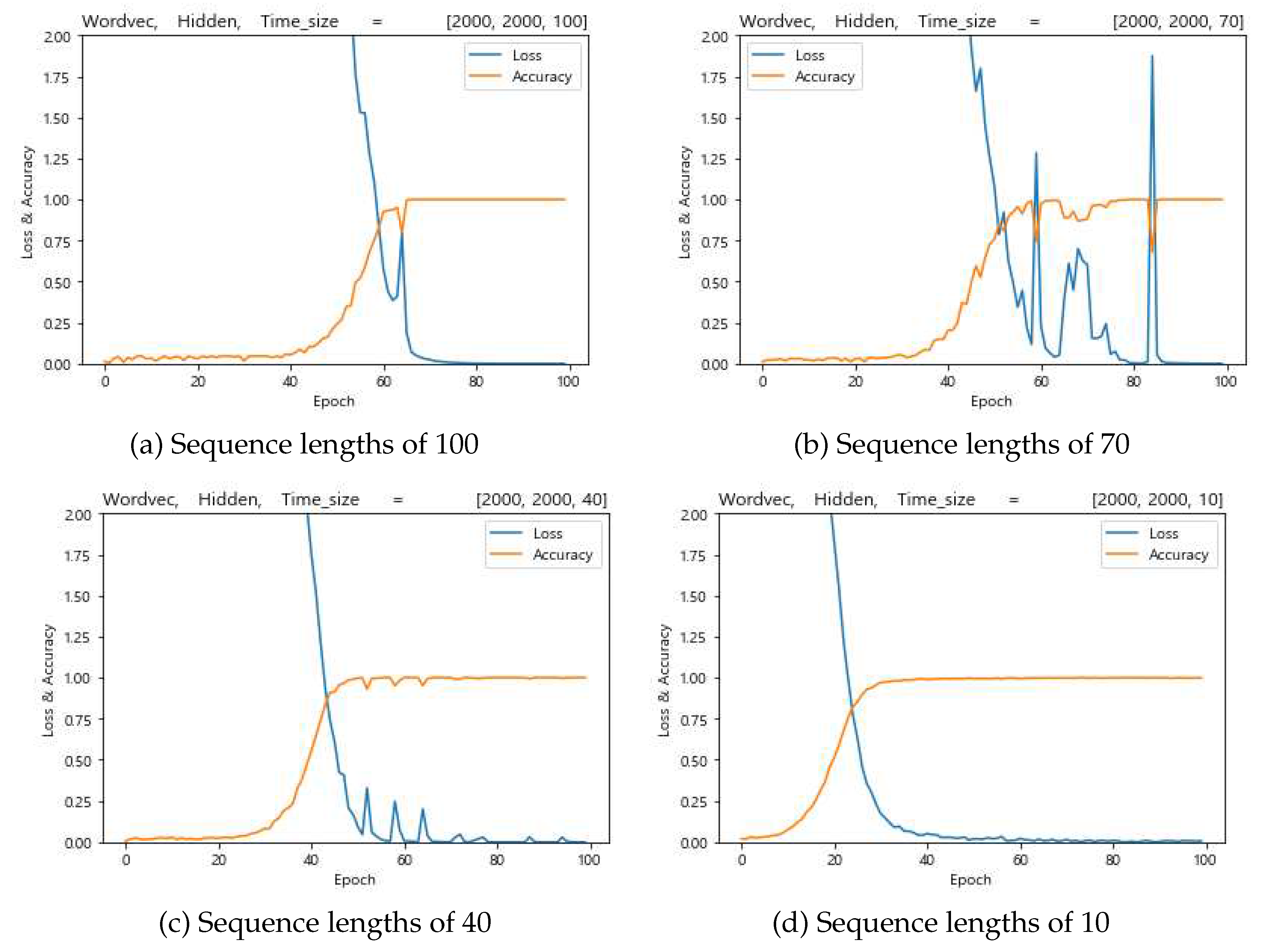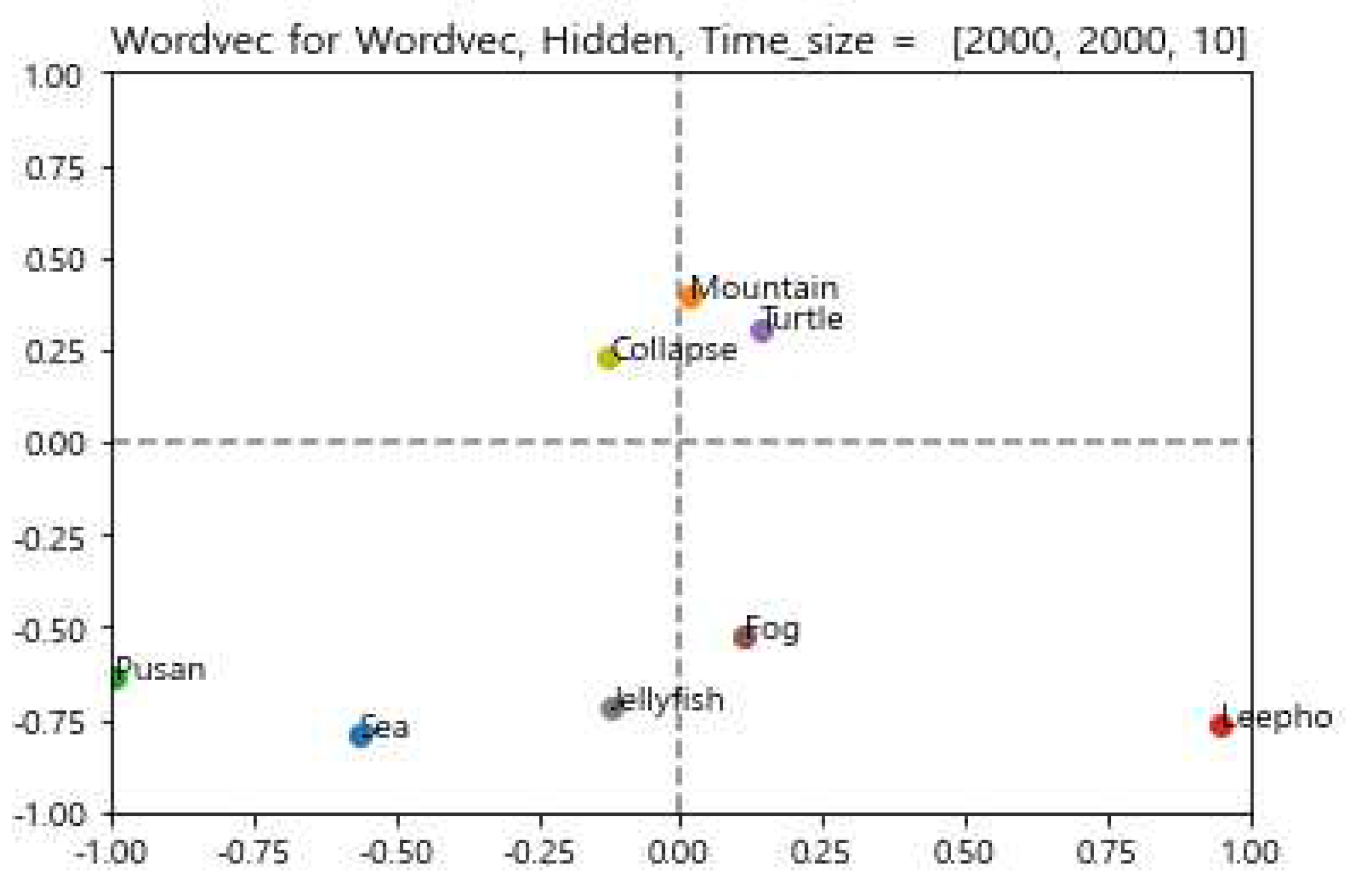Submitted:
23 November 2023
Posted:
24 November 2023
You are already at the latest version
Abstract
Keywords:
1. Introduction
2. Related Works
2.1. The Movie - Story
(Song, to Jang, who is questioning the incident at the cliff)
(Song) Please don’t talk about our situation like that.
(Jang) Our situation, what is it? Is it me lingering near your house every night? Listening to your every breath as you sleep soundly? Whispering to you, holding you close, making you happy?
That’s dignity, right? Do you know where dignity comes from? It’s my pride. I was a proud police officer. But I ruined the investigation because of my obsession with you. I’ve completely collapsed.
I gave your grandmother a new phone, the same model, and she has no idea. Throw the old phone into the sea.
Sink it deep so no one can find it.
(After Jang leaves, Song enters ‘collapse’ into her smartphone dictionary. The definition reads ‘fall apart and break.’ The scene fades out with Song’s expression reflecting her own collapse.)
(Referring to an audio file Song stored)
(Jang) You have that file too, don’t you? Tell me, what’s in it?
(Song) Your voice, confessing your love to me.
(Jang) Me?
(Song) I was so happy about it. But Lim found out.
(Jang) When did I ever say I love you?
(Song, in Chinese) The moment you said you loved me, your love ended, and my love began. Get rid of Lim’s phone. Throw it into the deep sea.
(Jang) When did I ever tell you I love you?
(The call ends, and Jang plays the recorded audio file from Song’s smartwatch)
(Song, only voice) Please don’t talk about our situation like that.
(Jang, voice) Our situation, what is it? Is it me lingering near your house every night? Listening to your every breath as you sleep soundly? Whispering to you, holding you close, making you happy? I’ve completely collapsed. Throw the old phone into the sea. Sink it deep so no one can find it.
Walking alone on this foggy, densely shrouded street
Somewhere, there’s only one shadow of your once tender figure
When I think, there’s nothing but passing memories
Yet my heart still aches with longing
Where could that person have gone?
Lonely, endlessly, in the midst of the fog
When I turn around, a faint voice blocks my way
Oh, wind, walk through this fog
Where could that person have gone?
Open your eyes in the midst of the fog, hide your tears
2.2. The Movies - Critics
(Song) Use this to reopen the case. Go back before the ’collapse.’ It seems like I came to Leepho because I want to become your unresolved case. Put my picture on the wall, to make you awake, and only think about me.
(Song) Close your eyes.
(Song gently covers Jang’s eyes with her hand, and Jang smiles.)
Listen to my breathing, synchronize your breath with mine.
(Song leans closer to Jang, both closing their eyes.)
(Jang listens to Song’s breathing. At some point, their breathing rhythms sync perfectly.)
(Song) Let’s go to the sea. Dive into the water. Descend. Keep descending.
You’re a jellyfish. No eyes, no nose, no thoughts.
(Song, in Chinese) Neither happy nor sad. No emotions.
Push away everything that happened today in the water, to me.
I’ll take it all, and now you have nothing left.
(Song opens her eyes. Jang’s face is right in front of her, and he’s already asleep.)
(Jang cooks shrimp fried rice in a wok as Song watches)
(Jang) This is a ’only one’ Chinese dish that I can make.
(After a while, Song stands in front of the wok and takes a spoonful of fried rice)
(She chews thoughtfully, while Jang anxiously waits for her reaction)
(Song) You call this Chinese food?
(She says to a disappointed Jang) It tastes good.
(Jang, relieved, scoops the rice onto a plate)
(1) Mountain/Sea : murder/suicide, doubt/love, investigation/compassion, man/woman, detective/suspect
(2) Pusan/Leepoh: mountain/sea, incident/safety, city/rural
(3) Green/Blue: mountain/sea
(4) Jellyfish/Turtle: sleeping/unsleeping
(5) Fog: dual image of safe and dangerous
(6) Negative images: maggots, ice cream, nuclear power plant, mountain, turtle
(7) Positive images: fried rice, sea, jellyfish
(8) Dramatic images: collapse, unresolved case, abandonment in the depths of the sea
3. Result and Analysis
3.1. Language Model - Structure
Original sentence: ’Iam,’ ’completely,’ ’collapsed’ (In Korean : ‘나는’ ‘완전히’ ‘붕괴되었어요’)
Preprocessed sentence: ’I’ ’am’ ’completely’ ’collapse’ ’-d’ (In Korean : ‘나’ ‘는’ ‘완전히’ ‘붕괴’ ‘되었어요’)
3.2. Word vectors - Similarity
(Jang listening to smartphone) I can’t control what you kill to eat, but if you’re giving me a gift to thank me for feeding you, that’s fine, really. If you really want to get me a gift, bring me the heart of that kind detective. I’d like some.
(Jang puts his hand on his left chest, heart prickling.)
(Jang takes the paper holder out of his briefcase and reads the recording of Song’s smartwatch).
(The day of the fire alarm) (Song’s voice) You’re wearing Derbys, your face is a little burnt. I can see his beard. He used to shave morning and night. Is he lazy? He looks weak. Because you can’t see me? (Song laughs)
(Looking at Lim to go outside and smoke) (Song’s voice) I smoked next to him when he was making that weird Chinese food. Lim couldn’t stand the smoke, and he was always talking about love in words. I remember the nights Jang spied on me, and I felt like I was being watched over by a man I trusted.
3.3. Word vectors – Analogy
3.4. Word vector - Visualization
4. Conclusion
Author Contributions
Funding
Institutional Review Board Statement
Informed Consent Statement
Data Availability Statement
Conflicts of Interest
References
- Juliadi, R. N.; Puspitarani, Y. Supervised model for sentiment analysis based on hotel review clusters using rapidMiner,Sinkron 2022, 7(3), 1–10. [CrossRef]
- Agrawal, M.; Moparthi, N. R. A comprehensive survey on aspect based word embedding models and sentiment analysis classification approaches, IOS Press Ebooks 2021, 12(4), 123–135. [CrossRef]
- Shalehanny, S. ; Triayudi, A. ; Handayani, E. T. E. Public’s sentiment analysis on shopee-food service using lexicon-based and support vector machine, Jurnal Riset Informatika 2021, 4(1). [CrossRef]
- Di Giovanni, M.; Tasca, T.; Brambilla, M. DataScience-Polimi at SemEval-2022 task 8: stacking language models to predict news article similarity, In Proceedings of the SemEval-2022, Seattle, United States, 14-15 July 2022, 1229–1234. [CrossRef]
- Raza, S.; Reji, D. J.; Ding, C. Dbias: detecting biases and ensuring fairness in news articles, Int. J. Data Sci. Anal. 2022. [CrossRef]
- Stegmair, J.; Prybutok, V. Trust in google - a textual analysis of news articles about cyberbullying, Inf. Syst. J. 2022, 25, 45–63. [CrossRef]
- Suissa, O.; Zhitomirsky-Geffet, M.; Elmalech, A. Around the GLOBE: numerical aggregation question-answering on heterogeneous genealogical knowledge graphs with deep neural networks, J. Comput. Cult. Herit. 2023, 16(3), Article No.51, 1–24. [CrossRef]
- Mitra, B. Neural methods for effective, efficient, and exposure-aware information retrieval, ACM SIGIR Forum 2021, 55(1), 1–24. [CrossRef]
- Bekhuis, T. Keywords, discoverability, and impact, J. Med. Libr. Assoc. 2015, 103(3), 119–120. [CrossRef]
- Yousef, M. W.; Alali, A. Analysis and evaluation of two feature selection algorithms in improving the performance of the sentiment analysis model of arabic tweets, Int. J. Adv. Comput. Sci. Appl. 2022. [CrossRef]
- Kalaiarasu, M.; Kumar, C. Sentiment analysis using improved novel convolutional neural network (SNCNN), Indonesian J. Comput. Cybern. Syst. 2021,15(1), 55–64. [CrossRef]
- Tian, Z. Application of artificial intelligence system in libraries through data mining and content filtering methods, J. Phys.: Conf. Ser. 2021, 1952 042091. [CrossRef]
- Zhang, C.; Swami, A.; Chawla, N. SHNE: representation learning for semantic-associated heterogeneous networks, In Proceedings of the 12th ACM International Conference on Web Search and Data Mining, Melbourne VIC Australia 11 - 15 February 2019, 690–698. [CrossRef]
- Rak, T.: Żyła, R. Using data mining techniques for detecting dependencies in the outcoming data of a web-based system, Appl. Sci. 2022, 12, 6115. [CrossRef]
- Lee, J. The film ‘Decision to Leave’, the trans-identity of death towards existence, Korean Association for Visual Culture 2022, 41(6), 143–162. [CrossRef]
- Park, J. Archetypes and symbols in <Decision to Leave>: Jungian psychoanalysis, J. of Korean Language and Culture 2023, 80, 237–261.
- Kim, M. Semiotic analysis and figurative understanding of film: focusing on the Park Chan-Wook’s film 〈Decision to Leave, J. of the Korea Contents Association 2023, 23(2), 155-–163. [CrossRef]
- Li, M.: Ahn, S. A study of visual representation in the movie <Decision to Break Up> - based on Lacan’s psychoanalytic approach, J. of Cultural Product & Design 2022, 71(12), 133–143.
- Yi, S. The <Decision to Leave> on the mountain and the sea, J. Res. Chin. Novels 2023, 69(1), 1–22. [CrossRef]
- Son, S. They decide to leave because they can’t get together: sexual difference and discrepancy in a movie <Decision to Leave>, Film Studies 2022, 94, 67-103. [CrossRef]
- Jin, S. Chinese women in Korean cinema: representation and ethics of women in the movie ‘Decision to Leave’, J. of Chinese Literature 2023, 52, 207–230. [CrossRef]
- Shim, E. Self-rerlexivity in park chan-wook’s <Decision to Leave>, Comp. Lit. 2023, 89, 89–108. [CrossRef]
- Kang, M. Boundary with the batter in <Decision to Leave>, Multi-Cultural Contents Studies 2023, 43, 123–139. [CrossRef]
- Lee, D. A study on the <Decision to Leave> - focusing on the suspension and formation of meanings, J. of Lang. & Lit., 91, 349–378. [CrossRef]
- Kusum, K.; Panda, S. Sentiment analysis using global vector and long short-term memory. Int. J. Electr. Comput. Eng. 2022, 414–422. [Google Scholar] [CrossRef]
- Setyanto, A.; Laksito, A.; Alarfaj, F.; Alreshoodi, M.; Kusrini,; Oyong, I.; Hayaty, M.; Alomair, A.; Almusallam, N.; Kurniasari, L. Arabic language opinion mining based on long short-term memory (LSTM), Appl. Sci. 2022, 12(9), 4140. [CrossRef]
- Kitaoka, N.; Chen, B.;aObashi, Y. Dynamic out-of-vocabulary word registration to language model for speech recognition, J. Audio, Speech, Music Proc. 2021, Article no.4. [CrossRef]
- Syed, M. H.; Chung, S. MenuNER: domain-adapted BERT based NER approach for a domain with limited dataset and its application to food menu domain, Appl. Sci. 2021, 11(13), 6007. [CrossRef]
- Cho, D.; Lee, H.; Kang, S. An empirical study of korean sentence representation with various tokenizations, Electronics 2021, 10(7), 845. [CrossRef]
- Park, Y.; Shin, Y. Semantic network analysis of newspaper articles related to agro-healing, J. People Plants Environ. 2022, 25(2), 167–176. [CrossRef]
- Bingyu, Z.; Arefyev, N. The document vectors using cosine similarity revisited, Proceedings of the 3rd Workshop on Insights from Negative Results in NLP, Association for Computational Linguistics, Dublin, Ireland, 26 May 2022. 129–-133. [CrossRef]
- Guthrie, J. You’re tearing me apart: deconstructing mise-en-scène in rebel without a cause, International Summit of the Music & Entertainment Industry Educators Association, Nashville, United States, 21-23 March 2019, 5–12. [CrossRef]
- Ethayarajh, K. Rotate king to get queen: word relationships as orthogonal transformations in embedding space, In Proceedings of the 2019 Conference on Empirical Methods in Natural Language Processing and the 9th International Joint Conference on Natural Language Processing (EMNLP-IJCNLP), Association for Computational Linguistics, Hong Kong, China, 3 - 7 November 2019, 3503-–3508. [CrossRef]
- Yanan, Q.; Fuqiang, T. Keyword extraction for film reviews based on social network analysis and natural language technology, J. Tech. Inform. 2020. [CrossRef]
- Latif, S. H. A. ; Alwan, A. S. ; Mohamed, A. M. Principal component analysis as tool for data reduction with an application, EUREKA: Phys. Eng. 2022, 5, 184–198. [CrossRef]






| Layer Structure | ||
|---|---|---|
| Embedding | (vocab_size, wordvec_size, inpu_length=time_size) | |
| LSTM | (hidden_size, dropout=0.6, return_sequences=True) | |
| LSTM | (hidden_size, dropout=0.6) | |
| Dense | (vocab_size, activation=‘softmax’) | |
| Model Summary | ||
| Layer | Output Shape | Parameters |
| Embedding | (None, 10 100, 2000) | 11,818,000 |
| LSTM_1 | (None, 10 100, 2000) | 32,008,000 |
| LSTM_2 | (None, 2000) | 32,008,000 |
| Dense | (None, 5909) | 11,823,909 |
| (Total parameters : 87,657,909) | ||
| Hyperparameters | ||
| vocab_size | 5,909 Number of vocabulary | |
| wordvec_size | 2,000 Dimension of word vectors | |
| hidden_size | 2,000 Dimension of hidden values of LSTM | |
| time_size | 100 ∼ 10 Length of sequence | |
| corpus_size | 24,368 Number of corpus | |
| Keyword | Time_size | |
|---|---|---|
| 40 | 10 | |
| Mountain | Investigation | Frame |
| Left hand | Pass by | |
| Pencil case | Paper holder | |
| Top | Wait | |
| Sea | Tremble | Letter |
| Investigation | Women | |
| Left hand | Wave | |
| Music | Suicide | |
| Pusan | Doctor | Lunchbox |
| Attached | Sushi | |
| Fast | Fall | |
| Fills | Running | |
| Leepho | Heart | Suddenly |
| Shaking | Computer | |
| Dining table | Polygraph | |
| Left hand | Smartphone | |
| Fog | Investigation | Suddenly |
| Shaking | Flask | |
| Left hand | Playback | |
| Expression | Leepho | |
| >Collapse | Investigation | Ace |
| Shaking | Same | |
| Left hand | Rise | |
| Razor | Immersed | |
| Jellyfish | Music | Dies |
| Investigation | Tasteless | |
| Shaking | Full | |
| Expression | Stealing | |
| Turtle | Sitting | Adam’s apple |
| What | Came | |
| Laughter | Rises | |
| Taking out | Midnight | |
| Pit | Taking out | Ignition |
| Sitting | Dining table | |
| Puts down | Stopping | |
| Sigh | Bouquet | |
| Icecream | Laughter | Soft |
| Taking out | Computer | |
| Welcoming | Crazy | |
| Prayer | Without | |
| Image/Keyword | Time_size | |
|---|---|---|
| 40 | 10 | |
| (City – Character) | Investigation | Rises |
| Music | Ignition | |
| Leepho – Pusan | Throw away | Force |
| || | Bedroom | Question |
| Fog – ? | Left hand | Sensor |
| Ear | Chasing | |
| (Places – Action) | Bandage | Husband |
| Pajamas | Song | |
| Mountain – Sea | Put in | Marriage |
| || | Mind | Prison |
| Collapse – ? | Pending | House |
| Laughter | Stir | |
| (Animals) | Taking out | Cremation urn |
| Sits | Rises | |
| Jellyfish – Turtle | Laughter | Alley |
| || | Puts down | Couple |
| Maggot – ? | Doubt | Jewel |
| Sigh | Adam’s apple | |
Disclaimer/Publisher’s Note: The statements, opinions and data contained in all publications are solely those of the individual author(s) and contributor(s) and not of MDPI and/or the editor(s). MDPI and/or the editor(s) disclaim responsibility for any injury to people or property resulting from any ideas, methods, instructions or products referred to in the content. |
© 2023 by the authors. Licensee MDPI, Basel, Switzerland. This article is an open access article distributed under the terms and conditions of the Creative Commons Attribution (CC BY) license (http://creativecommons.org/licenses/by/4.0/).





